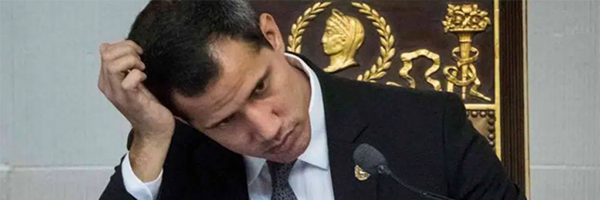Bitter Ending For Guaidó
The Venezuelan opposition, more divided than ever and internationally isolated, wants to end the “interim government” of Juan Guaidó and remove him from leadership position.
Three of the four main parties of the opposition alliance Unitary Platform expressed their support for ending the “interim presidency” and stop recognizing Guaidó as Venezuela’s “president in-charge.” They have enough votes to get this decision approved, the Financial Times reported on Thursday, October 20, citing a senior figure in the opposition alliance.
The decision comes as 10 largest opposition parties in Venezuela have agreed to hold primary elections in June 2023 to choose a single candidate for the presidency. The presidential election is scheduled for 2024.
This announcement is a major setback for the 39-year-old Guaidó, whose popularity levels have hit rock bottom after he tried for almost four years—and failed—to overthrow the elected president of the country, Nicolás Maduro. The only thing that Guaidó has managed to do is destroying the Venezuelan economy through overarching sanctions imposed on the country unilaterally by the US and its allies.
For Guaidó, the worst seems yet to come, as two sources close to the opposition leadership have told CNN that the United States, Guaidó’s main ally, plans to stop recognizing him as the interim head of state in January 2023, when a new legislative session begins in Venezuela.
Guaidó proclaimed himself the “president in-charge” of Venezuela in January 2019 with the support of then US President Donald Trump, who led an offensive to overthrow Maduro. In order to achieve this end, the Trump administration, the European Union, and the government of Canada bombarded Venezuela with unilateral sanctions, including an oil embargo that decimated the Venezuelan economy.
Despite getting control of the illegally seized billions of dollars of Venezuelan state assets and bank accounts frozen in the US and Europe, and the $1.8 billion worth of gold reserve deposited in the Bank of England, Guaidó has spent the last four years without any real power and with less and less international support.
Moreover, rocked by numerous corruption scandals, Guaidó and his entourage are now more divided than ever, and have become the most hated figures even among opposition supporters in Venezuela.
The end of the so-called interim government as well as Guaidó’s ouster from the opposition leadership are, in fact, an acknowledgment of defeat by the right wing and constitute a victory for Maduro.
“Imperialism believed that Venezuela belonged to them and that they could impose a president, like in colonial times,” President Maduro had said earlier.

 Hispan TV, Orinoco Tribune,
Hispan TV, Orinoco Tribune,